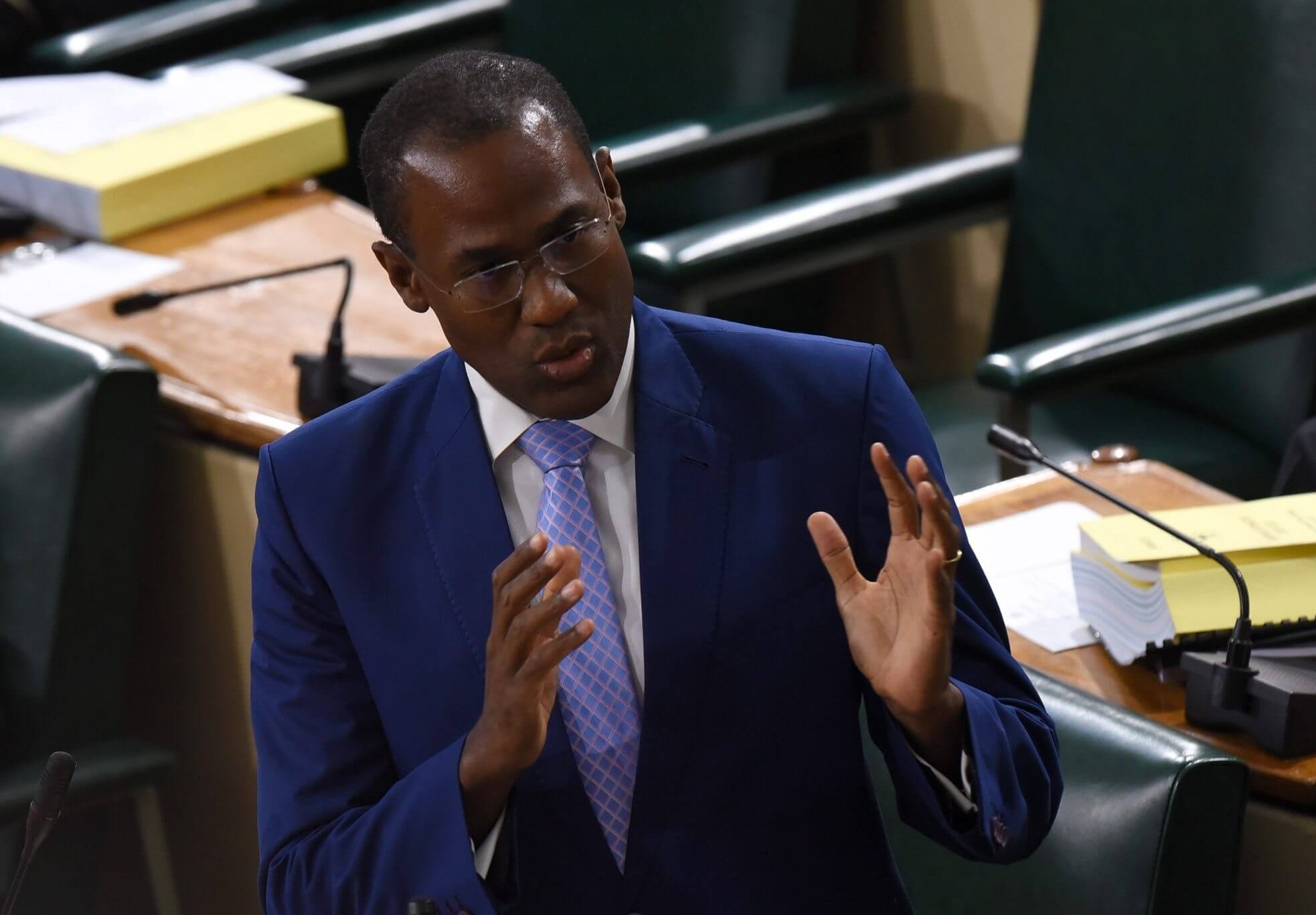Jamaica’s Finance Minister Announces the Restructuring of Public Sector Compensation
March 9, 2022 | Hopeton O’Connor-Dennie |
People leave the public sector and say in exit interviews that lack of compensation is the reason for resigning. This was over 30 percent who gave this as their reason for leaving the service.
Jamaica has 325 different compensation items. In the UK it is 7 (seven) which can hold on a postcard. Dr. Clarke stretched about twelve feet length of paper to demonstrate the extent of the compensation mess. He also used a postcard size cardboard to demonstrate the opposite. It was a most impactful and graphic demonstration.
Below are remarks the Finance Minister made regarding public sector compensation in Jamaica during his presentation of Jamaica’s 2022/2023 Fiscal Budget on Tuesday March 8, 2022.
“I want to turn my attention to the restructuring of public sector compensation, the implementation of which will begin this upcoming fiscal year.
The current structure of public sector compensation has 325 salary scales and 185 allowances, which is unduly complex, utterly unworkable inequitable and unfair. The UK, by comparison has 7 pay grades in their public sector.
The UK has 67 million people. We have 2.7 million people. The size of the UK’s economy is US$2.7 trillion. Jamaica’s is US$15 billion. That is the UK’s economy is nearly 200x times our size yet they have 7 pay scales in public sector compensation and we have 325!
If you were to print out each one of the grades we have in the public sector it would fill 15 pages, whereas you could fit the pay grades in the UK on the back of a Jamaican postcard.
This structure has evolved primarily through the use of multiple job evaluation tools to create different classifications and job families over the years. So you have people doing essentially similar jobs who are paid entirely differently.
I give you the example of stenographers who record the spoken word in Parliament and in the Courts. Same set of skills. Very similar jobs but, in our system these jobs have completely different salary grades and very different compensation.
There are many other examples. This creates inequity and tension, and often breeds resentment and negative attitudes. It is one thing to be a poor country – which we are, for now – but that does not mean that our systems must be unfair.
Public sector compensation improvement will cost over $100 billion over three years. Because our recovery is on track, we will reform public sector compensation and restore a better, fairer, simpler and more transparent compensation system.
The effective date of implementation will be April 1, 2022. Now that does not mean that your April paycheck will reflect the new compensation system.
First, we want to have the opportunity to continue our engagement with public sector unions and bargaining groups, and to provide more information and fine-tune the system.
We then propose that early in the second quarter of the new fiscal year the implementation will begin but it will be effective retroactively back to April 1, 2022.
Allow me to say, clearly and emphatically, that no public sector employee’s net pay will be lower as a result of the new compensation system. In fact every public sector employee’s net pay will be higher as a result of the new compensation system.”
Hopeton O’Connor-Dennie, staff journalist, was in parliament and filed this report for Vision Newspaper.




